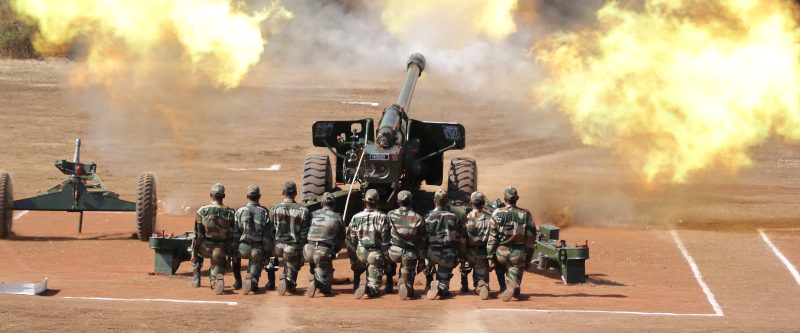The central government is finally moving ahead with its plans to revamp the Ordnance Factory Board (OFB) that has been India’s crown jewel in showcasing a government work culture that breeds a lack of ingenuity, innovation and creativity, all the while rewarding incompetence and promoting lack of accountability.
Reportedly, the government’s decision to restructure the nearly 200-year-old pre-historic company is expected to bring advantage to private sector companies as well as MSMEs engaged in defence-related manufacturing and supplies, according to industry chamber PHDCCI.
A white elephant of the Nehruvian economy, OFB employs more than 80,000 people in 41 ordnance factories, 13 ordnance R&D centres, and nine ordnance institutes of learning. In its revamp plans, the government has given the nod to turn 41 ammunition and defence equipment production facilities of OFB into seven separate corporate entities to improve accountability, efficiency and competitiveness.
The changes were necessary and long overdue and it will help the government in achieving its goals of becoming a major ‘defence equipment exporter’ as the corporates would be able to have greater penetration into the export market.
A sorry history of OFB
Reported by TFI, the Indian Army in its internal assessment had found that poor quality defence equipment supplied by OFB had led to 27 deaths and loss of 960 crore rupees to the government since 2014. OFB – the government-owned production unit, has long been infamous for its inefficiency and ‘Communist’ work culture. Its inefficient equipment has led to the loss of soldiers as well as money to the Indian armed forces.
In May 2019, The Tribune reported, “The Army has sought immediate intervention of the Defence Ministry to check rising cases of accidents involving battle tanks, artillery and air defence guns due to ‘poor quality’ of ammunition being supplied by the OFB.”
India’s defence manufacturing is still in the nascent stage, thanks to the monopoly of the public sector. The post-independence government restricted entry of private players in the strategic sector like defence equipment manufacturing, and the meagre resources were put to white elephant companies like HAL and OFB.
The public sector companies like HAL and Ordnance factory Board could not get any breakthrough in seven decades of its existence, and the country continued to import defence equipment from private manufacturers in countries like the United States, France, and the United Kingdom.
The allies of India like Sri Lanka, Bangladesh, Maldives, and Myanmar are forced to purchase defence equipment from enemy countries like China due to the inefficiency of India’s state-owned producers.
Read More: Ordnance Factory Board vs the Indian Army – The former doesn’t even have a case
These countries are defence allies of India, but, they purchase defence equipment from China because Indian companies are not able to meet their demand, and how would they? These companies cannot meet the demand of Indian armed forces and if our domestic forces are not willing to use equipment manufactured by OFB and HAL, why would any foreign country go for them.
The government has laid down the roadmap of the revival of OFB and just the way it was able to metamorphose DRDO into an asset from a liability, one can be hopeful that the same can be emulated for the company, pivotal to India’s defence plans.
